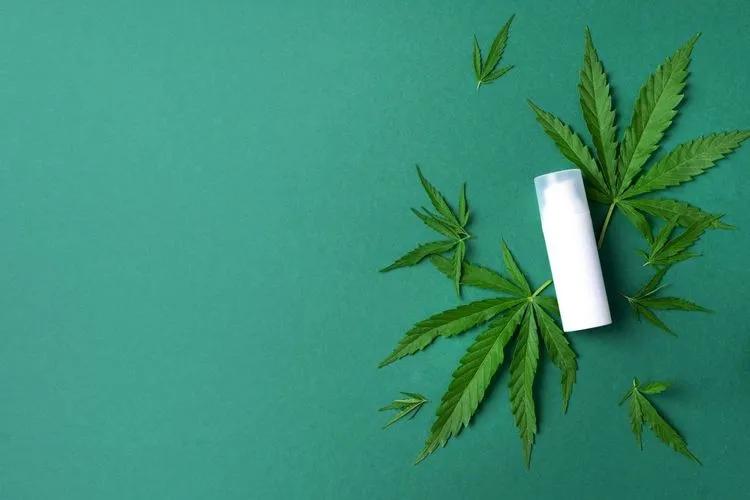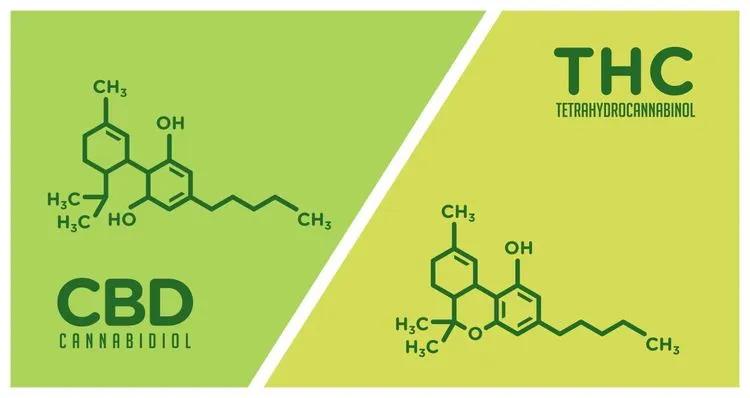Pay attention that growing marijuana may be subject to special restrictions and regulation in your country or state. Please contact your attorney to obtain advice before cultivating cannabis.
Disclaimer
Pay attention that growing marijuana may be subject to special restrictions and regulation in your country or state. Please contact your attorney to obtain advice before cultivating cannabis.

Both CBD and THC are cannabis ingredients, but there is a significant difference between them. We will explain the differences between the effects, side effects, legal interpretation, and other points that you should be aware of.
What Are THC and CBD?

CBD (cannabidiol) is one of the main components of cannabis plants and is mainly extracted from hemp corolla, stems, and seeds. It is thought that it has the function of adjusting various functions of the body to the normal state by activating the endocannabinoid system (ECS) by ingesting it without producing a psychoactive effect.
Products such as CBD oil, CBD liquid, CBD gummies, and CBD cream are highly popular on the market, and it can be said that they can be ingested in various forms.
THC (tetrahydrocannabinol) is also one of the main components of cannabis plants and is characterized by producing psychoactive effects when ingested. It is contained in cannabis (marijuana), which is used as a medical and luxury item and is said to cause an uplifting feeling and a euphoric feeling when used.
So both CBD and THC are found in cannabis plants but have different qualities, purposes, etc such as the following.
Formal differences

Сhemical Composition
CBD and THC are very similar in structure and have the same formula (21 carbon atoms, 30 hydrogen atoms, and two oxygen atoms). The difference lies in the way the atoms are arranged. That gives CBD and THC different chemical properties, and they affect your body differently.
However, both have different atomic arrangements and different structures leading to a big difference in the effect on the human body.
Firstly, THC is said to create so-called "high states" such as uplifting and euphoric sensations by binding to the cannabinoid-1 (CB-1) receptors in the brain. On the other hand, CBD has very weak binding to the CB-1 receptor.
In short, the mechanism of the reaction that occurs in the body after ingestion is similar, affecting the release of neurotransmitters in the brain by interacting with the body's cannabinoid receptors.
However, you can try different types of hemp depending on their chemical composition: high THC, low CBD (10-30% THC, trace amounts of CBD), balanced CBD/THC (5-15% THC and 5-15% CBD). high CBD, low THC (5-20% CBD, THC under 5%).
Legal aspects
There are different legal regimes for growing and using cannabis in different countries. In most developed countries, CBD, so-called medical marijuana is legalized. As for THC, it is mostly prohibited by law.
Besides, there is a trend to legalize cannabis, differences are depending on the state, such as "legal for both taste and medical use", "legal for medical use only", and "illegal for both taste and medical use", but medical cannabis is available in most states. It can be said that it is legalized.
Besides, for products containing CBD, only products with a THC content of 0.3% or less are permitted to be sold.
Practical differences
Effect On The Body
THC is the psychoactive component of cannabis, and it binds to these two receptors: CB-1 and CB-2. CB-1 influences pleasure, appetite, memory, and concentration, while CB-2 moderates the sensation of pain, and plays a role in homeostasis in certain parts of the body, such as the kidney and liver. THC increases the appetite, in addition to causing drowsiness. That is why it is mostly used in treatments against insomnia and loss of appetite. THC is the most popular among smokers but is banned in most countries.
CBD, for its part, interacts with receptors such as GPR55 or 5-HT1A. It has anti-inflammatory properties that far exceed THC, and without psychotropic effects, making it safe for any patient. It is widely used in diseases such as arthritis and rheumatism. While THC is used for recreational purposes, CBD is used for medical use. CBD, like THC, interacts with the CB-1 receptor, but differently. It does not activate it but complicates its activation by other substances. This prevents THC from binding to the CB-1 receptor. Therefore, the presence of CBD has a significant effect on THC-containing psychoactivity.
Nevertheless, the WHO (World Health Organization) confirmed the possibility of CBD abuse and suggested its negative impact on human health. Therefore, the phrase "no side effects have been confirmed" does not guarantee that it is completely safe.
Side Effects
Both THC and CBD have confirmed side effects. However, there are major differences in their symptoms and seriousness.
THC is considered an addictive substance with mostly negative effects on the body and mind. THC can cause a feeling of uplifting when taken, but it is also known that the reaction causes bad symptoms:
- Dependency.
THC acts strongly on the pathway of the reward system in the brain. Simply put, the brain responds to a stimulus and then seeks to repeat it. Dependencies on THC have also been confirmed. Although there is a hypothesis that the dependence on THC is minimal (as dependence on caffeine), the cessation of THC in some cases leads to a negative reaction of the body. Therefore, it is important to remember the side effects and quality of cannabis. - Continuous intake of THC affects mental and brain function.
The unofficial name of the effects of cannabis is psychosis. The main symptoms are hallucinations, mood swings, memory loss, and decreased ability to solve problems. Such symptoms are thought to be similar to the symptoms of schizophrenia. It is also observed such effects on the body like increased heart rate, impaired motor function, nausea, and vomiting. In 2016, a study at Osaka University discovered that cannabis cuts off the necessary networks of the cranial nerves, showing that cannabis has a serious adverse effect on brain function.
CBD also has some side effects including dizziness, nausea, diarrhea, and loss of appetite due to high dose intake. However, unlike THC, it does not cause serious damage to mental and brain functions, and it is said that it has a little adverse effect on the mind and body.
Nevertheless, the listed side effects concern the majority of users, but there are various reactions of an organism depending on the features of each person.
